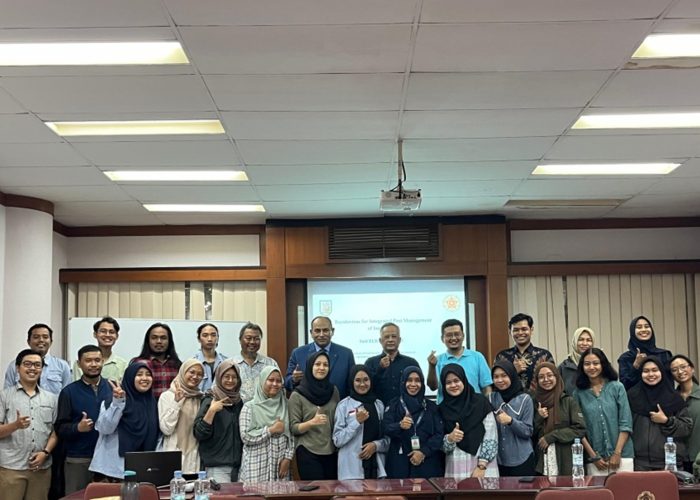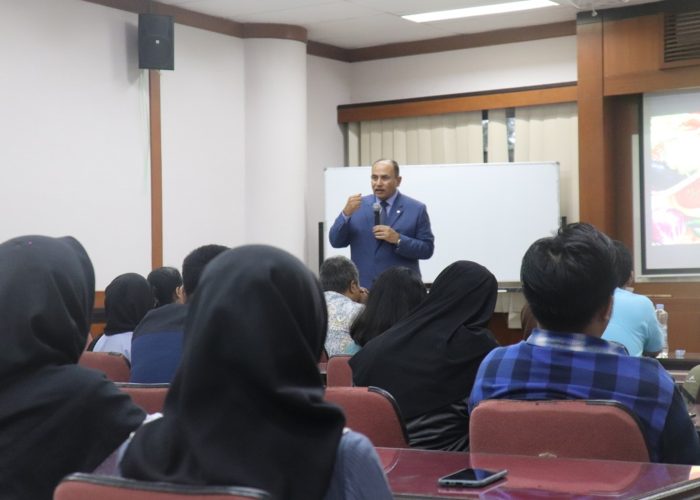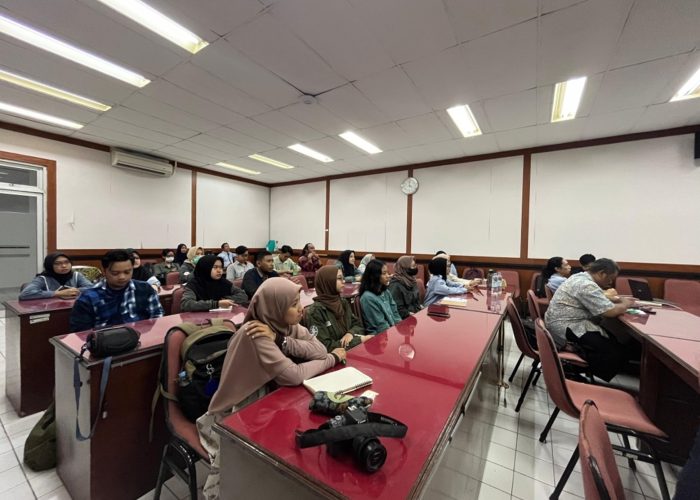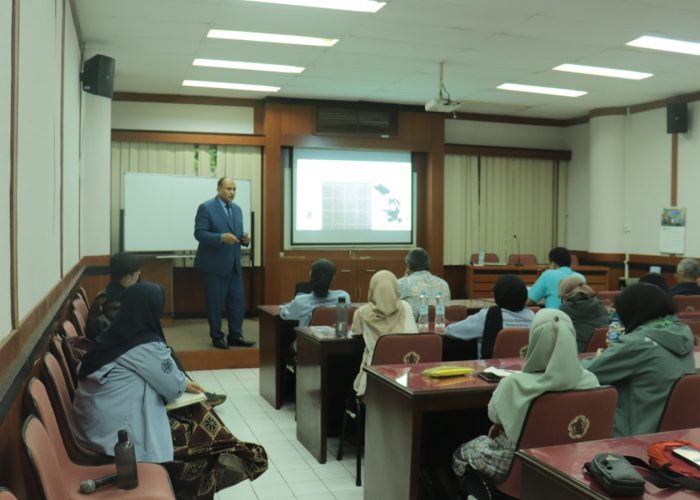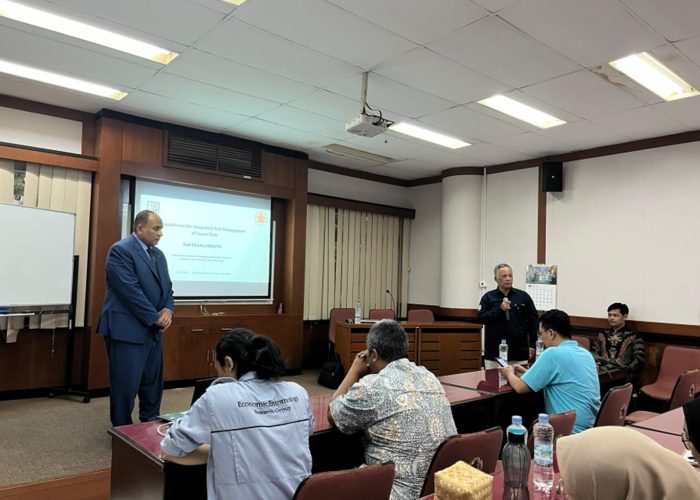The Entomology Laboratory of the Faculty of Biology, Gadjah Mada University held a guest lecture entitled “Baculovirus for Integrated Pest Management.” The event took place in the Upper Meeting Room of Building A and was moderated by Aryo Seto Pandu Wiranto, S.Si., M.Sc. The event was held on Wednesday, July 31, 2024, starting with remarks from Drs. Hari Purwanto, M.P., Ph.D., as the Head of the Entomology Laboratory of the Faculty of Biology. He emphasized the importance of innovative pest control strategies in increasing agricultural productivity and ensuring food security.
The event continued with the presentation of material by Prof. Said Ali Eid Elsalamouny from Cairo University, Egypt. Prof. Said delivered an in-depth presentation on the importance of using microbes, especially entomopathogenic viruses, as pest control agents in agriculture. He explained that several genera of viruses, such as Alphabaculovirus and Betabaculovirus, can effectively target pests from the order Lepidoptera, which includes many agricultural pests. Prof. Said also explained the use of Gammabaculovirus to control pests from the order Hymenoptera and Deltabaculovirus to control pests from the order Diptera. His presentation emphasized the potential of these viruses in the integrated pest management (IPM) system, which is very important for sustainable agriculture.
One of the highlights of the lecture was Prof. Said’s discussion on the mechanism of virus isolation from Olive Leaf Moth larvae, Palpita vitrealis. He explained the identification process consisting of direct observation of symptoms, observation using light and electron microscopes, and molecular techniques. This research resulted in the identification of a new type of Nucleopolyhedrovirus. To increase the effectiveness of Baculovirus as a biocontrol agent, Prof. Said explained several important factors that need to be considered, namely observation of insect behavior, timeliness in Baculovirus application, use of feeding stimulants, UV protectants, ensuring the right concentration, use of surfactants and adhesives. These factors are very important to maximize the impact of Baculovirus in pest control.
The material delivery session ended with a Q&A session, where participants actively interacted with Prof. Said, seeking further insights into the practical application of Baculovirus in agriculture. The guest lecture was closed with a group photo and participants left the event with renewed enthusiasm, understanding the important role of innovative pest control strategies in achieving food security and environmental sustainability. This event not only demonstrated progress in the field of Entomology but also strengthened the commitment of the Faculty of Biology, Universitas Gadjah Mada to contribute to the global goals of sustainable development, especially in the field of agriculture to prevent hunger (SDG 2) and a healthy and prosperous life (SDG 3) and safe for the environment (SDG 15).

